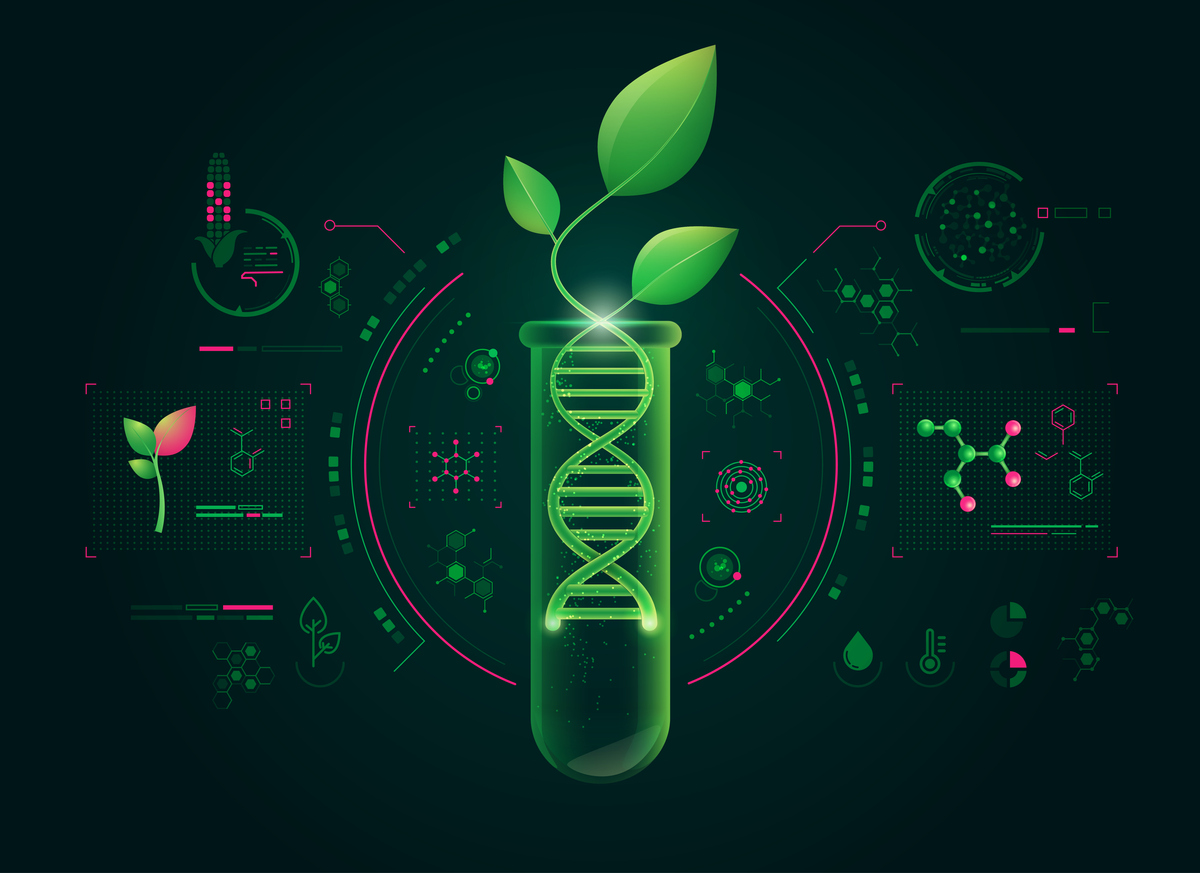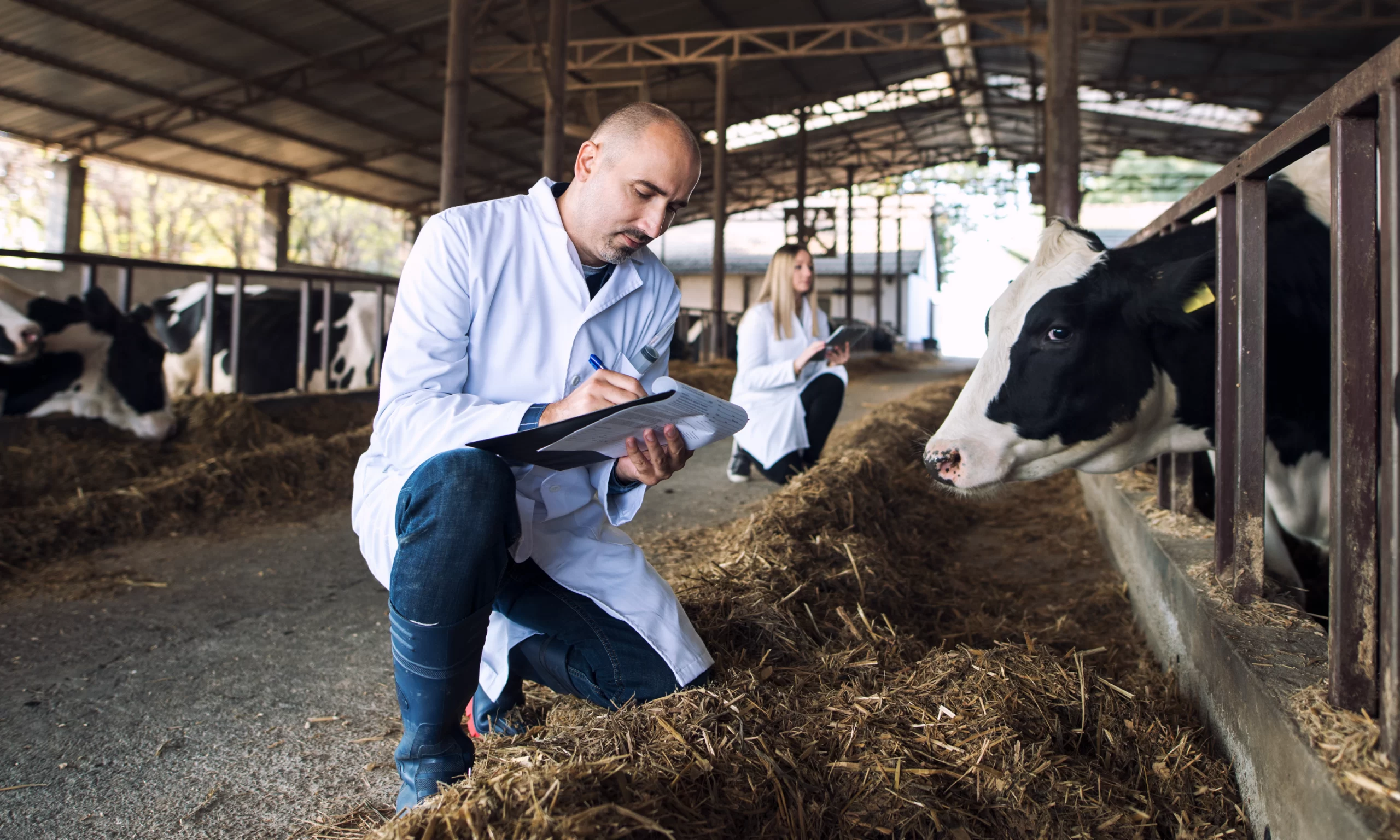An Overview: Molecular Farming In Food Production
The food industry has grown toward using plant-based ingredients in food and beverages. This shift involves replacing animal-based ingredients and synthetic compounds like aromas and colorants with plant-based alternatives. However, this transition has led to increased reliance on conventional agricultural systems, which poses sustainability challenges. The process requires substantial amounts of land, water, and fertilizers and the generation of significant organic waste. As an approach to cleaning up the food system, molecular farming has emerged as one potential candidate. It involves the genetic modification of plants to produce desired compounds. This article focuses on exploring the concept of molecular farming for the production of food.
Molecular Farming
Molecular farming consists of engineering plant cells to produce biomolecules and commercial products, which are valuable to medicine and industry. Plant molecular farming was first demonstrated in 1989 to produce antibiotics by genetically modifying tobacco plants. Since then, the pharmaceutical industry has leveraged technology to produce antibiotics, vaccines, and recombinant proteins. Nevertheless, the technology has expanded its reach, with several startups utilizing it to create a more sustainable food system.
In simple terms, molecular farming produces animal proteins in plants. The plants are modified genetically so that their cells replicate the desired protein, which is then harvested from the plant tissues, such as leaves. This benefits the meat and dairy industries in terms of both health and quality of the food, as well as minimal environmental impact, by minimizing the land and water requirements and lowering the environmental footprint. This food technology advance also promises a cleaner, more sustainable, and more efficient food system
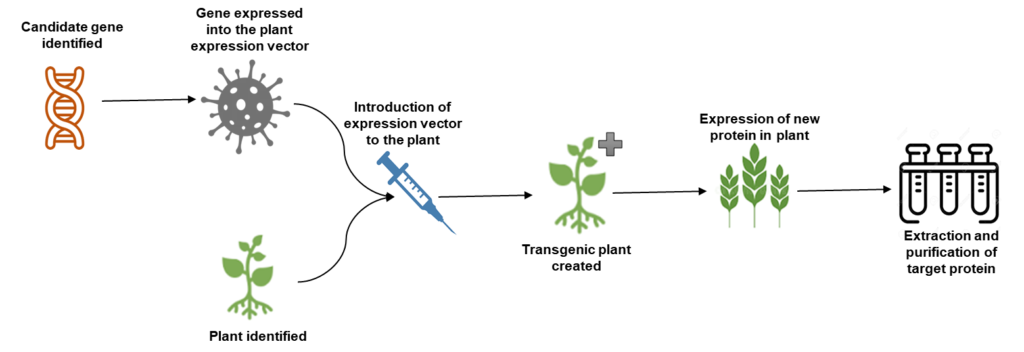
Figure 1: A simplified molecular farming process
Methods Of Molecular Farming
There are 5 methods of molecular farming for producing proteins. These techniques employ a restricted range of model plants and crops, such as safflower, soybean, tobacco, lettuce, pea, rice, barley, Camelina, and Nicotiana bethamiana.
- Plants that have been genetically modified (GMOs) through a technique known as stable nuclear transformation.
- Trans-plastomic plants are created through a process called “stable plastid (or chloroplast) transformation.”
- Transient transformation is when a foreign gene is introduced into the plant.
- Expression of proteins in non-GMO plants using virus-mediated technique.
- Plant cell and tissue culture for protein expression and secretion into the medium with subsequent recovery.
Advantages Of Molecular Farming
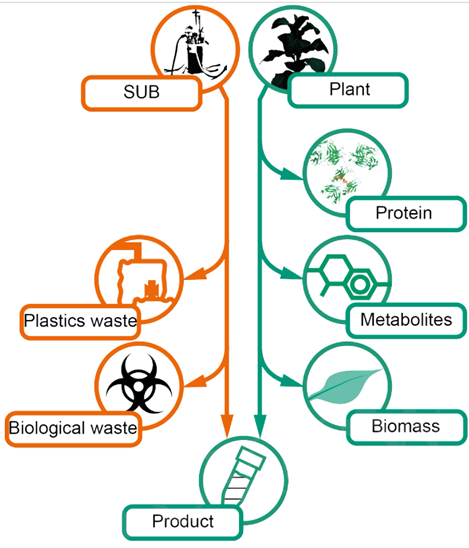
Figure 2: Comparison of waste generated in single-use bioreactor (SUB) and plant-based counterpart
Plants have unique advantages over other production systems, such as precision fermentation. The products derived from plants are safer as plants cannot be the host of human pathogens and bacterial toxins. The production process is comparatively simpler because sterility is not required during production. The scalability of molecular farming is promising as it can replace bioreactors with plants, which can grow in indoor farms or open fields. The speed of transient expression is also beneficial in the case of molecular farming. The capital expenditure for the expression and extraction of target compounds using molecular farming is less than other production platforms, such as precision fermentation, as it doesn’t require big fermenters and infrastructure, and expertise already exists for the planting, harvesting, and processing of plant material.
Protein folding is vital for the functioning of proteins. Plants generally synthesize protein from eukaryotes with correct folding, glycosylation, and activity. Besides, side streams provide additional value to existing processing facilities and markets, creating additional revenue. For example, soybeans as the expression platform would provide oil and fiber co-products, and processing facilities and markets already exist for those products
Applications in Food Production
Researchers and start-up ventures are increasingly adopting molecular farming, recognizing the opportunity to create novel food solutions. The two main application areas of molecular farming currently are food ingredients and cellular agriculture inputs.
Synthesis of growth factors required for cultivated meat production is a big challenge as it is expensive and conventionally obtained from the fetal calf. Since growth factors are sold more rapidly than consumer food ingredients, they are a great target for molecular farming companies. Molecular farming companies in Europe aim to produce growth factors for culture media. For instance, Tiamat Sciences uses plants to express growth factors, proteins, and other ingredients for cell culture media.
On a multi-tonne scale, molecular farming has the potential to seamlessly integrate into highly controlled environments, such as greenhouses and vertical farms. This integration would lead to a more resource-efficient approach, with reduced water and space usage compared to conventional agriculture, resulting in a minimized environmental impact.
Molecular farming is also used to produce animal proteins, milk, and meat proteins identical to those found in animals. Kyomei produces meat proteins with nutritional and sensory properties, as well as amino acid levels comparable to pork and beef proteins, allowing them to be incorporated directly into plant-based meat. This could shift consumer perception of plant-based foods regarding their sub-standard taste, driving the demand for the sector’s growth.
Molecular Farming Markets
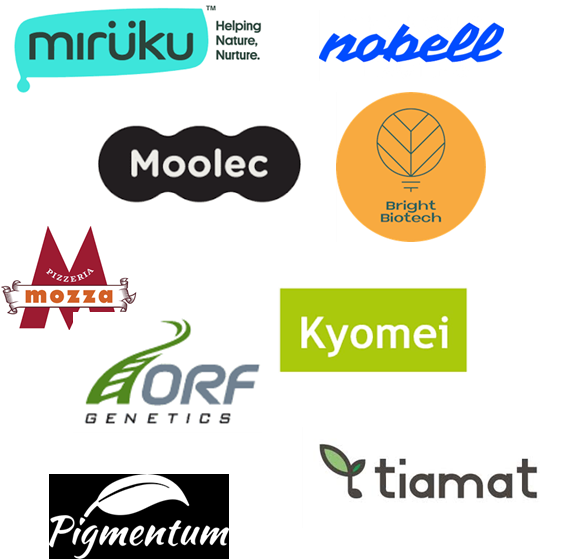
Figure 3: Startups working on molecular farming
Increasing global sustainability trends are providing a massive opportunity for venture-based start-ups. Increasing global sustainability trends are providing an enormous opportunity for venture-based start-ups. Investments in alternative protein start-ups have skyrocketed over the past few years, and the molecular farming landscape is proliferating. Investors are increasingly interested in the scale and cost advantages of molecular farming. These few companies leverage molecular farming to transform the food production system.
Miruku is a New Zealand-based company developing dairy proteins that hold the potential to produce animal-free milk proteins cost-effectively.
Moolec is a science-based ingredient company producing meat proteins through transgenic modification of crops like soy and pea with its patented technology.
Nobell Foods of South San Francisco, with its mission of producing a radically more humane and regenerative food system, has patented its technology for producing cheese protein and casein from high-grade soybeans.
Kyomei is a London-based company using its patented technology to produce meat myoglobin from transgenic grass, legumes, lettuce, and tobacco.
Pigment is an Israel-based startup working on producing pigment, aromas, and milk protein by genetically modifying romaine lettuce.
Other Markets
Mozza’s mission is to make cheese from plants that are indistinguishable from cheese that comes from animals. And, the company says, because its dairy cheese will melt like dairy cheese, stretch like dairy cheese, and taste just like conventional cheese.
IngredientWerks has developed corn varieties that could express myoglobin, leghemoglobin, and casein proteins. Through provisional patents, the company has already secured the right to produce myoglobin, leghemoglobin, and casein in corn so that no other companies can use the crop.
Tiamat Sciences uses plants to express affordable animal-free growth factors and biomolecules for cell culture media that help develop cultured meat.
Icelands’s molecular farming company ORF Genetics produces high-quality recombinant proteins such as growth factors in bioengineered barley plants for cultured meat.
U.K based Bright Biotech makes affordable recombinant proteins, which use chloroplasts to express high amounts of high-value proteins in plants. The company produces and supplies recombinant growth factors to the R&D sector.
Regulations
The regulatory landscape surrounding novel technologies, such as molecular farming, is under review in numerous countries. The United States, in particular, has a relatively streamlined process for approving ingredients produced through genetic modification. This has encouraged startups like Nobell Foods and Mozza to leverage molecular farming in their work on whey and casein proteins. However, regulations concerning genetically modified ingredients pose challenges, particularly when incorporating these ingredients directly into consumer products like meat or cheese.
In contrast, European startups primarily manufacture growth factors for research, cell manufacturing, and cultured meat applications. They do not market these products as food ingredients. Companies working on growth factors find running their production outside Europe easier, especially regarding large-scale production. Core Biogenesis, a French startup working on producing growth factors for cultivated meat and cell therapy, is turning to the US and Canada for open field trials, as it takes a long time to get a permit in Europe.
In the United States, Miruku, along with pioneers like Impossible Foods and Perfect Day, is subject to regulation under the bioengineered food category. Impossible Foods, known for its genetically modified soy-based heme, and Perfect Day, a precision fermentation start-up that engineers microbes to produce animal-free whey protein, also fall under the same regulatory framework. Perfect Day’s whey finds application in commercially available products like ice cream and cream cheese in the US market. This indicates the potential marketability of Miruku’s products. In Australia and New Zealand, the regulatory bodies responsible for approval, Food Safety Australia and New Zealand (FSANZ), respectively, have already approved Impossible Foods’ modified heme ingredient for commercial sale.
Conclusion
To meet the needs of the world’s hunger and growing population, several agricultural innovations are surfacing, including vertical farming, ocean farming, etc. Molecular farming currently remains a specialized platform with limited application in the broader market. Programming plants to produce animal proteins while preserving their structural and functional properties presents significant challenges. While scaling up plant production is relatively straightforward, involving seed planting in greenhouses or fields. The engineering and breeding of desired characteristics pose obstacles.
Another significant barrier to the widespread adoption of molecular farming is the uncertain intellectual property (IP) and regulatory landscape. This uncertainty is especially notable when compared to industrial microbial and mammalian cell expression systems. Molecular farming companies typically possess IP portfolios for their expression systems, which should instill confidence in potential industrial partners. However, the reliance on individual proprietary technologies restricts industry partners, as they become bound by the limitations of individual platforms, limiting their freedom to operate.
